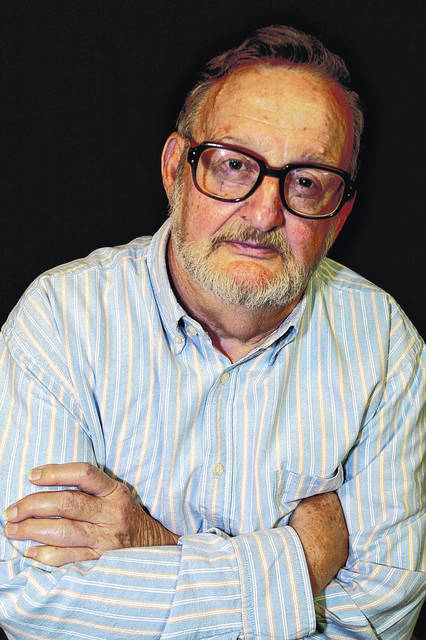
It seems to me that tonight is a very special night – an extraordinary one unlike any other at any time of the year.
It is an event experienced by hundreds of millions of people around the world – all with the common feelings of serenity, peace, and love. We occasionally see signs of this unity, this harmony of spirit, as warring political factions may call a pause in their squabbling, and both religious and non-religious folks take a break from their hectic lives in recognition of this solemn and beautiful occasion.
Perhaps the most dramatic example of this Christmas Eve aura arose over a century ago during the first year of World War I. German and British soldiers were involved in fighting each other in trench combat, that horrific version of warfare where troops fought endless battles over small pieces of ground. Extensive artillery barrages preceded infantry charges “over the top” with soldiers leaving their protective trenches and attacking the enemy in the face of barbed wire and machine gun fire leaving bodies stacked up in “no man’s land” – that area between the trenches of the opposing forces. That was the scene on Christmas Eve in 1914 when about 100,000 British and German troops were involved in an unofficial break in hostility along the Western Front.
So what happened that night? It was the event that became known as “The Christmas Truce” – a momentary, impromptu cease-fire. It also became symbolic of “Peace on Earth and Good Will towards our fellow humans” so often lacking in our everyday lives. Here are extracts from letters written by British soldiers as reported by the National World War I Museum and Memorial in Kansas City.
“This has been the most wonderful Christmas I have ever struck. We were in the trenches on Christmas Eve, and about 8.30 the firing was almost at a stand still. Then the Germans started shouting across to us, ‘a happy Christmas’ and commenced putting up lots of Christmas trees with hundreds of candles on the parapets of their trenches.” — Cpl. Leon Harris, 13th Battalion, London Regiment
“We would sing a song or a carol first and then they would sing one and I tell you they can harmonise (sic) all right.” — Pvt. G. Layton, A Company, 1st Royal Warwickshire Regiment
“All through the night we sang carols to them and they sang to us and one played ‘God Save the King’ on a mouth organ.” — Rifleman C.H. Brazier, Queen’s Westminsters of Bishop’s Stortford
“On Christmas Day we were out of the trenches along with the Germans, some of whom had a song and dance, while two of our platoons had a game of football. It was surprising to see the German soldiers — some appeared old, others were boys, and others wore glasses … A number of our fellows have got addresses from the Germans and are going to try and meet one another after the war.” — Pvt. Farnden, Rifle Brigade
“Between the trenches there were a lot of dead Germans whom we helped to bury. In one place where the trenches are only 25 yards apart we could see dead Germans half-buried, their legs and gloved hands sticking out of the ground. The trenches in this position are so close that they are called ‘The Death Trap’, as hundreds have been killed there.” — A junior officer
“On our right was a regiment of Prussian Guards and on our left was a Saxon regiment. On Christmas morning some of our fellows shouted across to them saying that if they would not fire our chaps would meet them half-way between the trenches and spend Christmas as friends. They consented to do so. Our chaps at once went out and when in the open Prussians fired on our men killing two and wounding several more. The Saxons, who behaved like gentlemen, threatened the Prussians if they did the same trick again. Well, during Christmas Day our fellows and the Saxons fixed up a table between the two trenches and they spent a happy time together, and exchanged souvenirs and presented one another with little keepsakes.” — A British soldier
Well, there’s much more to this story, but I think the essential truth is obvious. This was a special night – the one night where, even in the midst of some of the bloodiest warfare ever known, peace could break out and erstwhile enemies could reconcile their differences – even if temporarily. What’s regrettable is that this is only a nearly forgotten story from history and not an object lesson for today.
At least that’s how it seems to me.


